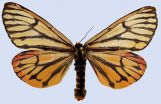(Press-News.org) A means of reprogramming a flawed immune response into an efficient anti-tumoral one was brought to light by the results of a translational trial relating to breast cancer. Thanks to the innovative combination of mathematical modelisation and experimentation, only 20 tests were necessary, whereas traditional experimentation would have required 596 tests to obtain the same results.
The study was jointly conducted by Doctor Marie-Agnès Doucey (Experimental oncology, Centre Ludwig de l'UNIL pour la recherche sur le cancer), Professor Ioannis Xenarios (UNIL, SIB, Vital-IT) and Professor Jean-François Delaloye (Breast care center-CHUV, UNIL). Beyond demonstrating the continued collaboration between three of Switzerland's leading scientific institutions, the trial is noteworthy for its combination of experimental oncology and modelisation. Indeed, it is the first such trial to exploit modelisation to identify efficient therapeutic approaches to be used on cells of breast cancer patients. The funding awarded by the Fond National Suisse pour la Recherche Scientifique and the publication of its results in the scientific review PLOS Computational Biology further give weight to both the validity and to the potential of its findings.
The dialogue between monocyte and tumor
Monocytes are immune cells present in the blood. They are consequently also found in tumors. In this setting, monocytes are known to promote the development of the tumoral blood vessels (referred to as their angiogenic action) and to suppress the immune response directed at the tumor (referred to as their immunosuppressive action). As crucial as these are to the development of the tumor, the underlying mechanisms which give rise to these actions are as yet relatively unknown in the field of human cancers.
Taking an interdisciplinary view to find the weakness
The novel approach undertaken, made possible by the interdisciplinarity of a CHUV, UNIL and SIB consortium, consists in combining clinical and experimental oncology with modelisation. The result is an ability to identify these mechanisms and to block the angiogenic and immunosuppressive actions of monocytes in breast cancer.
The trial revealed that, in patients suffering from breast cancer, once blood monocytes are present in the tumor, they considerably increase their angiogenic and immunosuppressive activity. This observation indicates that the tumor has the ability to shape monocyte activities to its advantage.
The key objective of the trial was consequently to block the tumoral monocytes' angiogenic and immunosuppressive capacities. This implied identifying the molecular mechanisms behind this activity. Bearing in mind the scarcity of monocytes within a tumor and the generally small size of tumor samples, the challenge was considerable. It is against such a backdrop that the innovative combination of mathematical modelisation and experimentation demonstrated its strengths.
Blocking the signals
A Boolean model of monocyte behavior was built, based on experimental data. This model was then drawn on to predict which type of treatments would be able to interfere with these monocyte activities. The predictions were tested via experimentation on tumoral monocytes from patients and one double-treatment was earmarked as being extremely efficient. The treatment inhibits the signaling pathways linked to the kinase receptors TIE-2 and VEGFR which act in synergy to control the angiogenic and immunosuppressive actions of tumoral monocytes.
Advantages and discoveries
The advantages of this approach are two-fold: the modelisation is able to frame the experimentation, and new treatments can be discovered through optimum use of resources and patient samples. By way of comparison, traditional experimentation would have required 596 tests to obtain the same results, whereas only 20 tests were necessary with this new approach.
The trial led to a further trail of discovery. The tumoral monocytes are highly adaptable; as a result of the double treatment they transform themselves into cells capable of giving rise to an immune response directed against the tumor. The results underline that tumoral monocytes represent a new treatment target and suggest that this double treatment could contribute to an immunotherapy approach in the treatment of breast cancer.
INFORMATION:
The Menetries's tiger moth (Borearctia menetriesii) is the most rare and enigmatic representative among the Palearctic Arctiinae. During an expedition in almost inaccessible wild taiga area of Eastern Siberia, Russian scientists had the luck to encounter it. During their studies they also recorded feeding larva of this mysterious species on a native devil's helmet host plant for the first time. The study was published in the open access journal Nota Lepidopterologica.
The Menetries's tiger moth (Borearctia menetriesii) is the most rare and enigmatic representative among ...
Amsterdam, March 16, 2015 - Elsevier journal Maturitas, today announced the publication of a position statement by the European Menopause and Andropause Society (EMAS) covering the ten- point guide to the integral management of menopausal health. This has been written to mark the 10th EMAS Congress in Madrid May 20-22, 2015.
With increased longevity and more women becoming centenarians, management of the menopause and post-reproductive health is of growing importance as it has the potential to help promote health over several decades. Women have individual needs and the ...
The studies below will be presented at the American College of Cardiology's 64th Annual Scientific Session the morning of Saturday, March 14.
1. Depression May Influence Cardiovascular Outcomes
A new study adds to the evidence that depression may influence cardiovascular outcomes, prompting authors to call on cardiologists to pay closer attention to depression when managing patients with heart disease.
Researchers at Care Institute of Medical Sciences in India found depression to be independently associated with a greater chance of cardiovascular death and lower quality ...
Patients with symptoms of heart disease have similar outcomes in terms of death and major cardiac conditions regardless of whether they undergo a functional stress test or a computed tomographic scan, but the scan may be better at ruling out the need for subsequent tests and procedures in patients who are free of heart disease, according to research presented at the American College of Cardiology's 64th Annual Scientific Session in San Diego.
The PROMISE trial is the first-ever randomized controlled trial to compare clinical outcomes in patients receiving functional stress ...
SAN DIEGO (March 14, 2015) -- Adding the antiplatelet drug ticagrelor to aspirin as long-term therapy after a heart attack significantly reduced the rate of subsequent death from cardiovascular causes, heart attack or stroke, with the benefit appearing to accrue for nearly three years, according to a study presented at the American College of Cardiology's 64th Annual Scientific Session.
The double-blind PEGASUS-TIMI 54 trial recruited 21,162 patients who had experienced a heart attack in the previous one to three years. Each had another factor, such as age or diabetes, ...
SAN DIEGO (March 14, 2015) -- A study comparing the overall economics of computed tomographic angiography with functional stress tests for evaluating patients with symptoms suggestive of possible blocked coronary arteries found no significant differences in costs over three years. The study was presented at the American College of Cardiology's 64th Annual Scientific Session.
Although the angiography, scans of the heart referred to as CT angiography, initially appeared to provide some cost savings, this didn't hold up once the costs of subsequent testing and procedures ...
The studies below will be presented at the American College of Cardiology's 64th Annual Scientific Session the afternoon of Saturday, March 14.
1. Energy Drink Shown to Raise Resting Blood Pressure
Medical reports have linked energy drink consumption to adverse cardiac events such as changes in heart rhythm, heart attacks and even deaths in otherwise healthy people. To investigate how energy drinks affect the heart, researchers alternately gave a can of commercially available energy drink or a placebo drink to 25 healthy young adults (age 19-40 years) and assessed changes ...
Scientists of the University of Arizona's Lunar and Planetary Laboratory have taken to kites that they fly above lava flows blanketing the Hawaiian landscape to unravel the past mysteries that shaped Mars.
A kite, equipped with off-the-shelf instruments such as a camera, a GPS, and orientation sensors, scans the terrain from high above. The team then employs parallel computing and powerful software algorithms to assemble tens of thousands of images into extremely detailed and accurate 3D digital terrain models.
In terms of studying volcanic landscapes, the project is ...
SAN DIEGO, Calif. (March 16, 2015)-- As the nation's headlines turn more and more to issues of tolerance -- race, religion, free speech, same sex marriage -- research by San Diego State University Psychology Professor Jean M. Twenge shows that Americans are actually more tolerant than ever before.
In a paper released this month by the journal Social Forces, Twenge, along with Nathan T. Carter and Keith Campbell from the University of Georgia, found that Americans are now more likely to believe that people with different views and lifestyles can and should have the same ...
ANN ARBOR, Mich. -- Some of social media's greatest stars aren't even old enough to tweet: Pictures of kids playing dress up, having meltdowns and even in the bathtub adorn Facebook walls. Diaper-donning toddlers dancing to the likes of Beyonce and Taylor Swift rack up YouTube views. Countless blogs share stories about everything from potty training to preschool struggles.
Today's University of Michigan C.S. Mott Children's Hospital National Poll on Children's Health finds that this so-called "sharenting" isn't going anywhere anytime soon, with more than half of mothers ...


